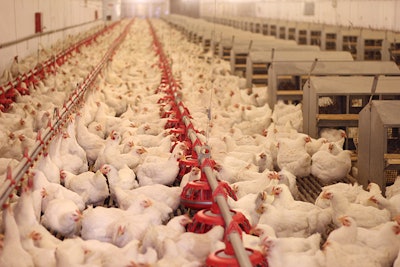
A research project from the University of Georgia investigated the efficacy of day of hatch infectious bronchitis virus vaccination against false layer syndrome.
“We undertook this project to try to answer a question that the industry was having in this disease presentation that we had not seen in quite some time,” explained Brian Jordan, Ph.D., associate professor, Departments of Population Health and Poultry Science at the University of Georgia.
It can be difficult to identify layer hens with false layer disease. Infected birds appear and act completely normal, however they never lay eggs, which can have a significant negative economic impact for the layer industry.
“In all respects, there’s nothing to indicate that they shouldn’t start laying, but they never do,” Jordan added. “False layer syndrome is really often tied to the development of the oviducts.”
Previously, several strains of infectious bronchitis virus have been associated with cystic oviduct development and false layer syndrome, although no causal relationship has been proven.
Linking infectious bronchitis virus and false layer syndrome
The study initially focused on whether there was a causal link between infectious bronchitis virus and false layer syndrome.
“Something else that really came out of the data is that there are many different serotypes of bronchitis that can cause false layer syndrome,” Jordan said.
This is more likely to occur “if the conditions are right,” he noted.
These conditions include infection with infectious bronchitis virus at less than two weeks of age, the infected birds need to be immunologically susceptible to the serotype and the virus needs to be antigenically different from the maternal antibodies the birds inherited.
Investigating infectious bronchitis vaccines
The second part of the project evaluated how infectious bronchitis virus vaccination affected the development of the oviducts.
Researchers challenged seven-day old chickens with the infectious bronchitis virus and then vaccinated against the disease at either day of hatch or day 14.
“What we found was that just vaccine alone with a heavy challenge didn’t really influence the development of the oviduct in adults, although it does seem to maybe lessen the severity of the cyst formation in the oviduct,” said Jordan.
The research was funded by a grant from the U.S. Poultry and Egg Association (USPOULTRY).


















